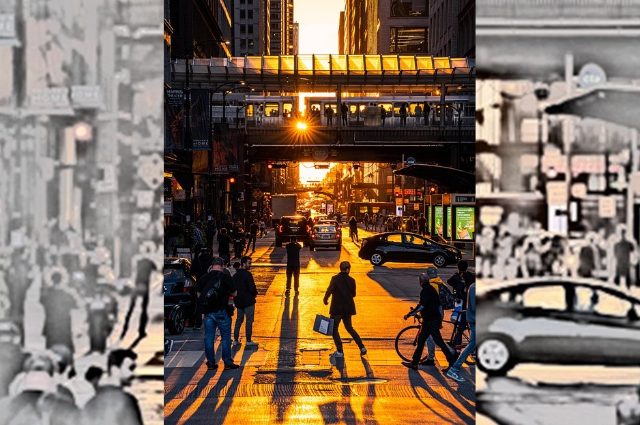
Image by Waleed Khalid from Pixabay
Introduction: The Age of Empty Crowds
We are the most connected generation in human history - and the loneliest.
In a world that never sleeps, where pings and likes simulate intimacy, and “busy” is worn as a badge of honour, a silent epidemic has emerged: loneliness.
It isn’t visible like climate change, nor viral like COVID-19, but its effects are no less catastrophic. It sits quietly at the edges of classrooms, behind high-achieving resumes, inside crowded hostels, and under the glow of smartphone screens. It has no age limit, no borders and no easy cure.
While society races ahead with innovation, productivity, and technological marvels, it leaves behind the very thing that makes us human: connection.
The Statistics We Don’t Talk About
In 2023, U.S. Surgeon General Dr. Vivek Murthy officially called loneliness a “public health crisis,” equating its impact on mortality to smoking 15 cigarettes a day. It increases the risk of dementia by 50%, heart disease by 29%, and stroke by 32%, according to The Lancet.
In India, the numbers are equally alarming. A recent WEF Youth Survey revealed that nearly one-third of Indians aged 18–24 report feeling “often or always lonely.” The paradox is stark: surrounded by people, yet emotionally adrift.
This isn't just about personal sadness. It’s a societal dysfunction, deeply intertwined with mental health, academic stress, digital overconsumption, and cultural stigma around emotional vulnerability.
Digital Intimacy and Real-Life Isolation
Social media platforms, originally built to connect us, now serve as echo chambers for comparison, validation-seeking, and curated perfection. We confuse visibility with value. We scroll through highlight reels of others’ lives while hiding the raw footage of our own.
The result? Surface-level interaction, but emotional starvation.
We “talk” all day - in texts, snaps, DMs - but rarely do we feel heard. We are experts at multitasking, yet increasingly incapable of presence. Even friendship has become transactional: maintained by streaks, not stories; by memes, not memories.
The tech revolution promised us connection at scale. But in doing so, it shrunk the depth of our conversations.
The Hidden Costs in Campus Life
College students, often stereotyped as energetic and carefree, face a unique loneliness - one that comes from transitions, performance pressure, identity exploration, and digital overload.
Meet Riya, a fictional but familiar face - a 22-year-old engineering topper in Pune. Hundreds of followers. Always online. But her journal reveals a different story: “I speak all day, but no one hears me. I laugh in reels, but I cry in silence.”
Or consider Arjun, the responsible son of a middle-class family, bearing the weight of expectations. No one knew of his mental struggles until it was too late.
These are not isolated cases. They reflect a generation emotionally overwhelmed but socially under-supported.
Why We Must Take This Seriously
Loneliness is more than a feeling - it’s a signal. Just like hunger signals a need for food, loneliness signals a need for connection. Ignoring it doesn’t make it disappear; it only deepens its roots.
Left unchecked, loneliness erodes self-worth, increases anxiety, distorts perceptions, and weakens immunity. It makes us more vulnerable - not just emotionally, but biologically.
And in a country like India, where mental health services are still largely inaccessible or stigmatized, the danger becomes even more acute.
What Can Be Done - and Where Do We Start?
It’s tempting to think of this as an individual issue. But the antidote to loneliness is not just personal resilience - it’s collective responsibility.
Normalize Vulnerability
Let’s change what strength looks like. It's not about being unbreakable. It's about being real. Talking openly about emotional struggles, creating safe spaces in colleges and families, and encouraging peer support can change lives.
Build Intentional Communities
Hostels, classrooms, clubs - these must become ecosystems of emotional connection, not competition. Initiatives like “No Tech Tuesdays” or campus empathy circles can help.
Redefine Success
Let’s stop idolizing productivity at the cost of peace. Encourage balance, rest, and emotional check-ins. Make “How are you really?” a question we ask - and wait to hear the answer.
Use Tech to Heal, Not Hide
Technology isn’t the enemy - our habits are. Follow creators who promote honesty over aesthetics. Engage in platforms for mental health support. Set digital boundaries.
Conclusion: From Isolation to Intention
Loneliness doesn’t scream. It whispers - in the gaps between conversations, in the ache behind achievements, in the silence after a long scroll.
But if we listen closely, it also offers us a chance: to slow down, reach out, and rebuild what we’ve lost - the courage to connect deeply.
Because at the end of it all, we won’t be remembered for our grades, our jobs, or our follower count. We’ll be remembered for how we made others feel - seen, safe, and significant.
So the next time you feel alone - or suspect someone else might - remember this -_
Connection isn’t just a human desire. It’s a human right. And it's time we made space for it - intentionally, unapologetically, and together.
